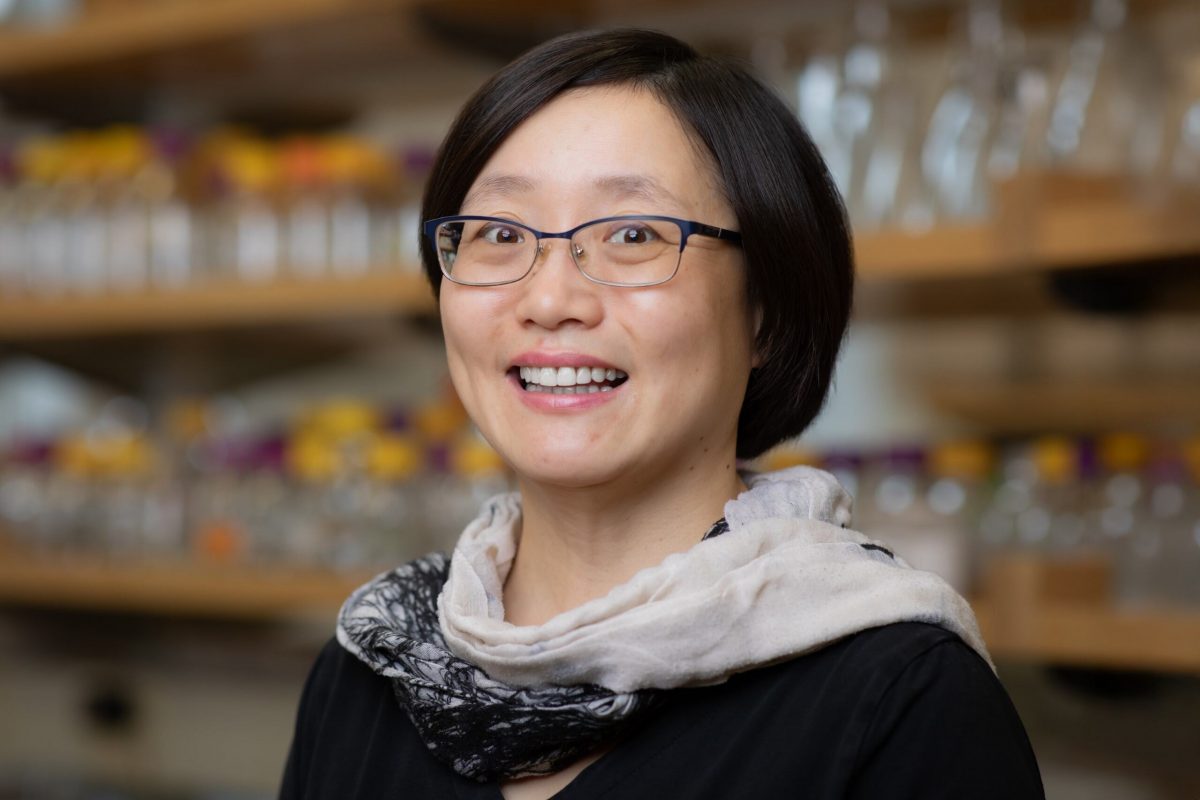
A Florida State University chemist has earned an award from the national honor society for women in chemistry for research breakthroughs in interface chemistry, a field with key applications in energy storage and human health.
Professor of Chemistry and Biochemistry Yan-Yan Hu has received the 2025 Agnes Fay Morgan Research Award from Iota Sigma Pi, an honor bestowed annually recognizing a woman conducting groundbreaking research in fundamental aspects of chemistry. Hu was also elected as a member of the organization in May, joining generations of notable scientists, including Nobel Laureates such as the late Marie Curie and Dorothy Hodgkin. The award will be presented at Iota Sigma Pi's 36th Triennial Convention in June 2026 in California.
"I'm honored to receive this award and become part of a society filled with such extraordinary women who have been pioneers in science for over a century," Hu said. "Their initiative and leadership in pushing for equality for women in the scientific world are commendable, and it means a lot to be considered among these great scientists."
Iota Sigma Pi, founded in 1902, is a national organization that promotes the advancement of women in chemistry by recognizing scientists who have demonstrated impressive scholastic achievement and high professional competence through their research. More than 11,000 scientists have been initiated into the organization, and there are nearly 50 local chapters throughout the U.S.
"Dr. Yan-Yan Hu is a scientific leader in developing and applying state-of-the-art solid-state nuclear magnetic resonance, or NMR, methods for materials and biochemical research," said Wei Yang, chair of the Department of Chemistry and Biochemistry. "In her scientific journey, she has demonstrated remarkable creativity, deep insight and unbelievable persistence. It should be noted that she's one of very few scientists, or possibly the only one, leading major research grants in both materials and biomedical research."
Hu, who also holds a joint appointment at the National High Magnetic Field Laboratory, develops and applies novel solid-state NMR techniques to study interface chemistry and ion dynamics in systems ranging from biological systems, such as proteins, to functional materials used in rechargeable batteries and fuel cells. NMR spectroscopy utilizes radio-frequency pulses to manipulate nuclear spin coherence in magnetic fields, extracting insights into the structures and interactions of molecules at the atomic level. This provides valuable information about both the static structures and dynamic processes of materials.
"Ion transport and interface chemistry involve the study of interactions and material properties at the boundary where two systems meet," Hu said. "This research is key in the development of solid-state rechargeable batteries that are safer and more energy-dense than current rechargeable batteries. As a society, we also hope to use sustainable energy sources like solar and wind power, but limitations in energy storage prevent us from utilizing their fullest potentials. In my research, I've been working to overcome these barriers for the last decade and enhance energy storage."
Earlier this year, Hu earned $2.2 million from the National Institutes of Health to analyze a key set of protein complexes that drive cell division in Mycobacterium tuberculosis, which caused 1.25 million fatalities in 2024 and is the world's leading infectious disease killer, according to the World Health Organization.
"Part of my research focuses on improving human health and quality of life by studying protein interactions inside bacteria," Hu said. "My goal is to determine how we can regulate the division process of the bacteria and design ways to terminate the cell division process, stopping the spread of diseases. If we can't translate the findings from our fundamental chemistry research into a meaningful way to solve issues in society, our work as scientists is not done."
Hu earned her bachelor's degree in chemistry from Tsinghua University in Beijing in 2006 before moving to the U.S. and completing her doctorate in chemistry at Iowa State University in 2011. Following graduation, she worked as a Royal Society Newton Fellow and Marie Curie Research Fellow - through the Royal Society and the Marie Skłodowska-Curie Actions, respectively - at the University of Cambridge from 2011 to 2014 before joining FSU's faculty in 2014.
"Many of my career mentors were women, which is another reason I'm extraordinarily honored to earn this award - as women in STEM, the support we give each other is so important," Hu said. "Mentoring students is also rewarding; I find deep meaning in offering them the same advice and support I was fortunate enough to receive. Though some of my mentors are no longer with us, this experience feels like a full-circle moment and an opportunity to honor their impact by paying it forward to the next generation of scientists."
Visit the Hu Research Group website to learn more about her work. For more on research conducted in the Department of Chemistry and Biochemistry, visit chem.fsu.edu.






